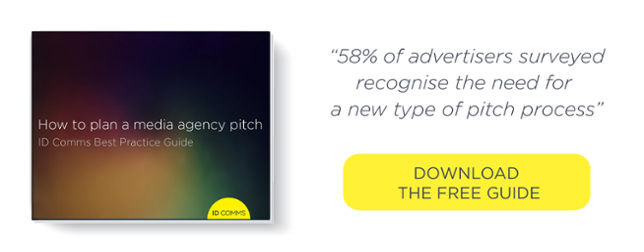A new generation of media agency leaders will have to fight to retain status as the business takes on ad:tech, consultancy and a more aggressive client base. Tom Denford explains.
This has been a phenomenal year for media. A host of transparency issues from the ANA rebate reporting to Dentsu’s troubles in Japan have dominated the headlines but there are fundamental changes taking place that will be with us for years.
There is a new attitude brewing among advertisers. Brands that have neglected their media investment and not provided sufficient oversight and governance have been woken up.
Rather than simply call a pitch to see if there’s a better deal around, they are taking their time to properly consider their future requirements for media at a strategic level. For many this is a first.
If you consider that most advertiser contracts with agencies last for three or four years, then they are now looking into the future, anticipating how the media landscape might change, how consumer behaviour could change and what this might mean in terms of their own marketing organisations as well as the role of their media agency partners.
The change is apparent from the recent news that Procter & Gamble has hired Gerry D’Angelo as global head of media, the closest thing to a chief media officer that you’re likely to find. P&G, always ahead of the pack, is investing in media management and clearly taking it seriously.
This rethink has already seen a dramatic change in fortunes in the agency world. Just look at Publicis Media's restructure, IPG’s media resurgence, or Omnicom’s recent new business triumphs with innovative agency models.
Expect to see more disruption and innovation into 2017 as more and more marketers make demands for a new kind of media agency service.

The news that Group M has changed its global chief executive, replacing Dominic Proctor with Kelly Clark, is indicative of the fact that all agency groups will need a new type of leadership.
Future leaders of media agencies and holding companies are going to have a different set of challenges in the next five years to those faced across the last five years, not least in defending their businesses from the onslaught from management consultancies and ad-tech companies, while still attracting business from marketers.
Advertisers are going to be more forthright in their demands for agency resource and the terms of business, a process that will be somewhat painful for agencies to adjust to.
Ultimately, however, adapting to and embracing this process will help them grow their businesses in new and exciting ways.
The first sign of change will be advertisers pushing to closer align their agencies to company business outcomes and incentivise them financially on some shared goals. Over time, closer alignment will eliminate transparency concerns and result in a media agency landscape that is more in tune with advertiser requirements.
Recent research suggests that 64% of the leading US advertisers are planning to review their media agencies in 2017, following a relatively quiet pitch market in 2016.
This indicates that many have used this year to take stock and focus their energies internally to define their needs for the future of this fast-changing landscape. The most important outcome of this work will be for advertisers to set a clear vision for the role that media will play as an investment in growth, with clear KPIs that can be shared with their media agencies.
This new approach will have a profound knock-on effect for agencies, with brands coming to market with a well-considered "blueprint" for the media agency resources they need.
Agencies will need to respond in more agile and open ways than they have in the past, hence the need for a significant changing of the guard in agency management.
Change is coming. Brands, agencies and consultants need to move away from obsessing about cheaper pricing and bigger discounts. More and more auditing is not what media is all about.
It’s time to replace fear of the complexity of media, with a new excitement in the opportunity of media.
Let’s start now.
This article was originally published in Campaign, on 5 October 2016






COMMENTS